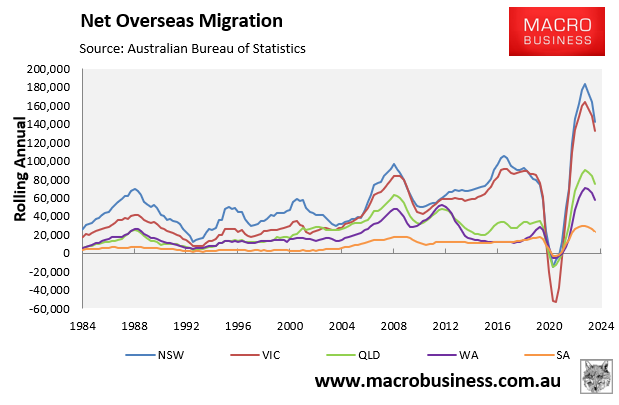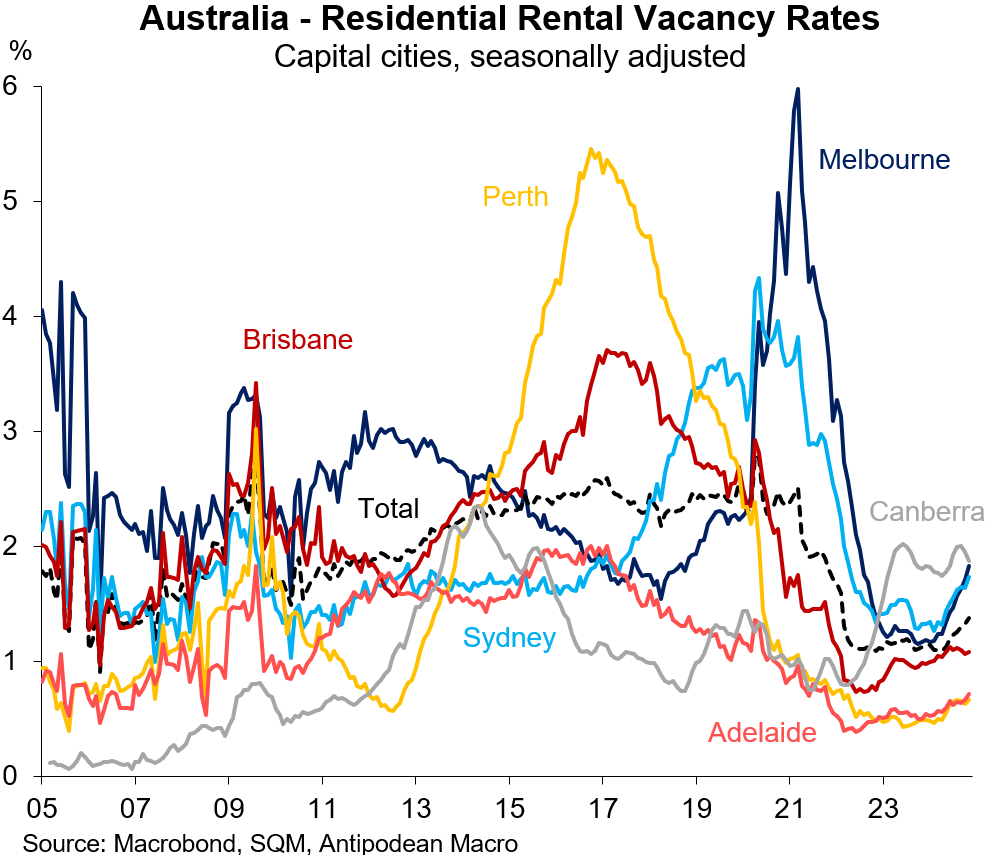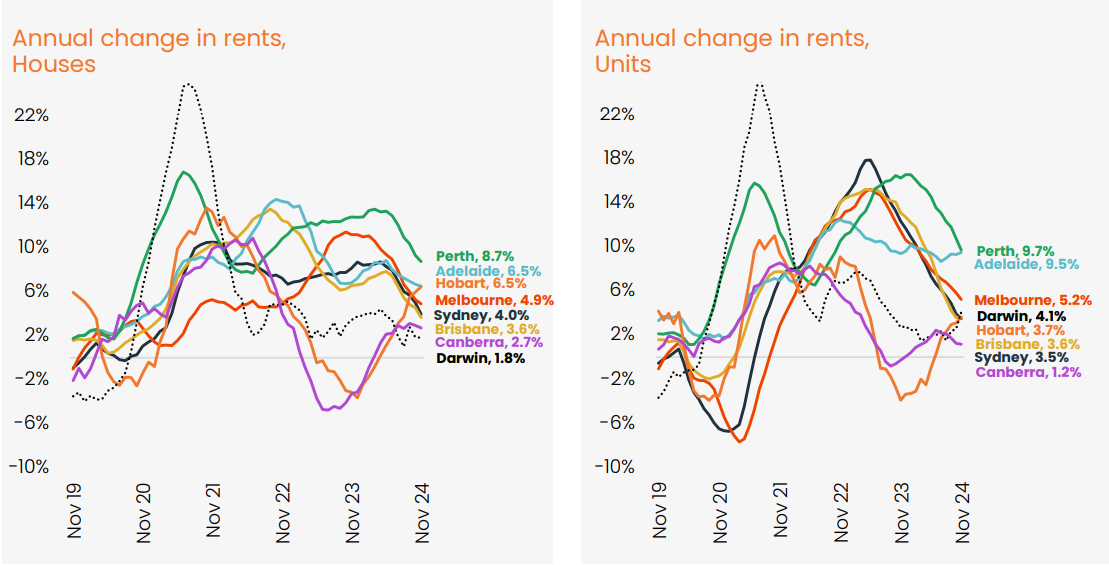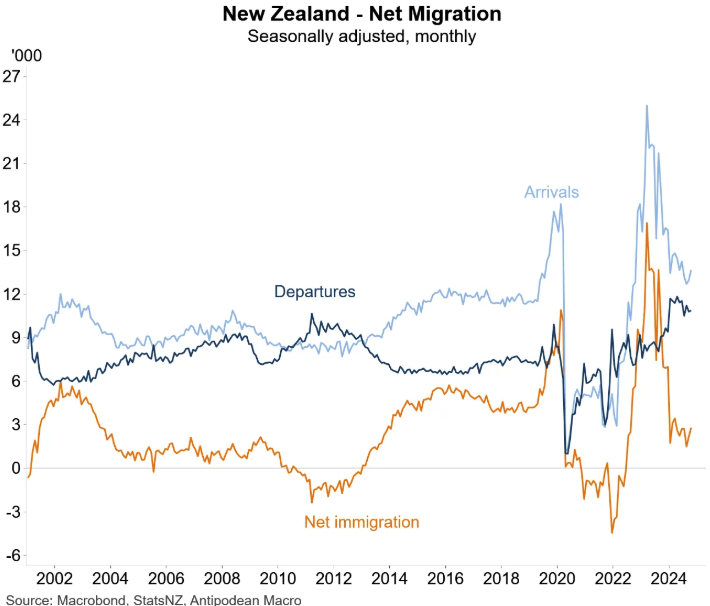Last week’s Q2 official population data from the Australian Bureau of Statistics (ABS) showed that Australia’s net overseas migration has slowed materially, down to 445,700 in Q2 2024 from 555,800 in Q2 2023.

The slowing of net overseas migration and tenants moving into shared housing have increased rental vacancy rates, especially across Sydney and Melbourne.

CoreLogic also recorded a sharp slowing in rental growth across most markets:

Source: CoreLogic
A similar process is playing out across the pond in New Zealand.
New Zealand’s net overseas migration has tanked, as illustrated below by Justin Fabo at Antipodean Macro.

Not surprisingly, national median residential rents in New Zealand have been locked at $600 a week for nine consecutive months, according to the latest bond data from Tenancy Services.
The number of newly tenanted properties is also flat, with Tenancy Services receiving 11,019 new bonds in October this year, barely changing from the 10,986 it received in October last year.
Interest.co.nz also reports “hearing whispers of rising vacancy levels and increasing difficulties finding suitable tenants from property managers”.
“If that continues through summer, then the current period of rental stability could turn into a period of rental decline, but we will have to wait and see where things go over Christmas/new year”.
Who would have thought? Importing fewer renters results in easier conditions for tenants.

